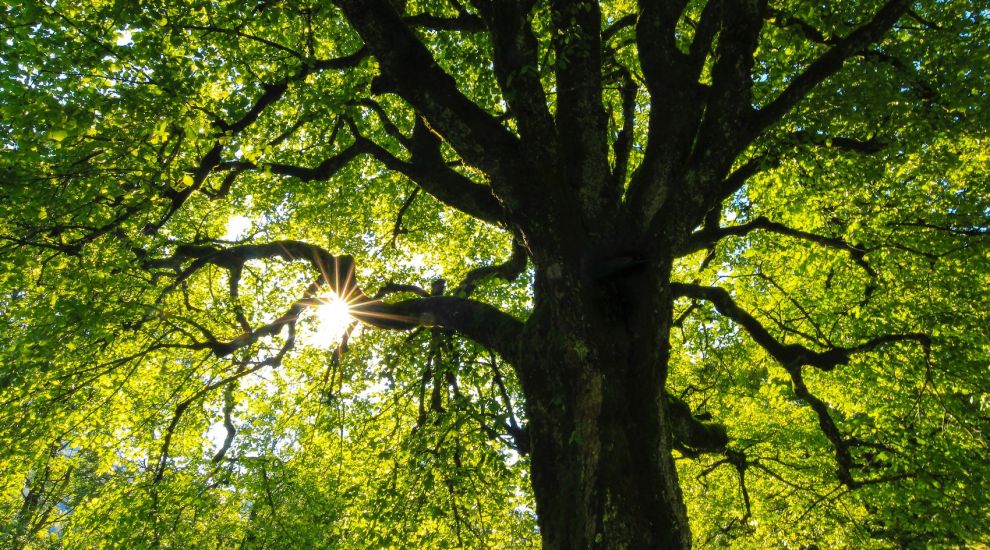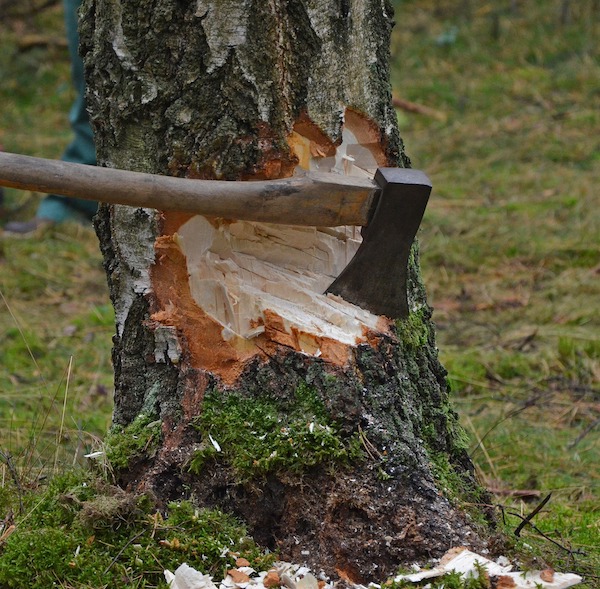


A local zoologist and ecologist with experience in land management and environment law is calling for better legal protection for Jersey's trees.
Dr Amy Louise Hall, a programme co-coordinator and a senior research fellow for Jersey International Centre of Advanced Studies, as well as the Chair of the Jersey Bat Group and the Zoology Section of the Société Jersiaise, says that even protected trees are not safe from felling.
Having gone through the Planning Register website, she discovered that since 2008, 30 applications have been made to fell protected trees, none of which was refused.
This resulted in close to 100 trees being felled.
10 of those applications, Dr Hall wrote in a post shared to her Facebook page, related to La Providence in St. Lawrence where trees had been protected following a public campaign. Since then, a quarter (25%) of the listed trees have gone.
“There isn’t a very strong protection for our trees,” Dr Hall said. “Even the trees that are listed to save them from development, when people have built their house, they then apply for the trees to be delisted and most of the time, it is accepted.
“It’s not a terribly strong protection for any of our trees.”
Dr Hall says a lot of the 100 trees that have been cut down were old specimens and that not all of them were cut down for sensible reasons. “Some had been in people’s hedgerows and probably just disturbing the view,” she said.
Dr Hall says the current protection feels “wrong” given that while trees are preserved during development, once it is finished, they can be cut down following a simple application.

Pictured: 100 'protected' trees have been felled since 2008.
She is therefore calling for local laws to be strengthened to ensure better protection. She also believes anyone who cuts a tree illegally should be prosecuted.
“It’s worrying that some of our bigger trees that have survived World Warr II sit in people’s gardens, and of course people should have control in what happens in their gardens but there is nothing stopping them from cutting these trees down.
“If you look at the UK, for trees in conservation areas, you cannot carry out any work without applying to the local authority for the authorisation to do so. In woodlands, you have to apply for a felling licence for trees, and it’s not just the larger trees, it’s anything that is over eight centimetres in diameter.
“I think one of the problems is that no one has ever received a fine for destroying a tree. In the UK, I think the maximum has been a £300,000 fine for destroying a tree illegally, that would make people think.”
Dr Hall's concerns are shared by many involved in local conservation.
Last summer, Gerard Farnham, the Chairman of Jersey Trees for Life, a local charity focused on protecting and enhancing Jersey's woodland, spoke out about the lack of protection in an opinion piece for Express.
"Jersey does not have a cohesive tree strategy," he said. "We have our idea of one at JTfL, and the battle to get effective laws in place to protect trees is ongoing.

Pictured: Jersey Trees for Life has also been campaigning for better protection for the trees.
"We advocate protection and enforcement laws akin to those in the UK, and we fully support the Ministerial leads in achieving this. We have worked with them for some considerable time to accomplish this. However, the establishment is in a state of flux and the clock is ticking. Both for them and for the trees.
"Now we are calling for something to be actually done to get this moving again. To get the planned new laws in place. We know where the obstacles are, we know how they can be overcome. It just has to happen."
With the island aiming to achieve carbon neutrality by 2030, Dr Hall believes protecting the trees should be a no-brainer for the Government.
“Carbon neutrality starts with protecting what you already have,” she said. “Trees absorb so much carbon.
“We need to be protecting them in all the high-quality areas, otherwise we are going to lose some historic trees.
“The Environment Department is aware and I know they are trying to strengthen the protection, but unfortunately it’s taking a long time to get there.
“I am hoping that within the next year or two, we should see some change."
Comments
Comments on this story express the views of the commentator only, not Bailiwick Publishing. We are unable to guarantee the accuracy of any of those comments.